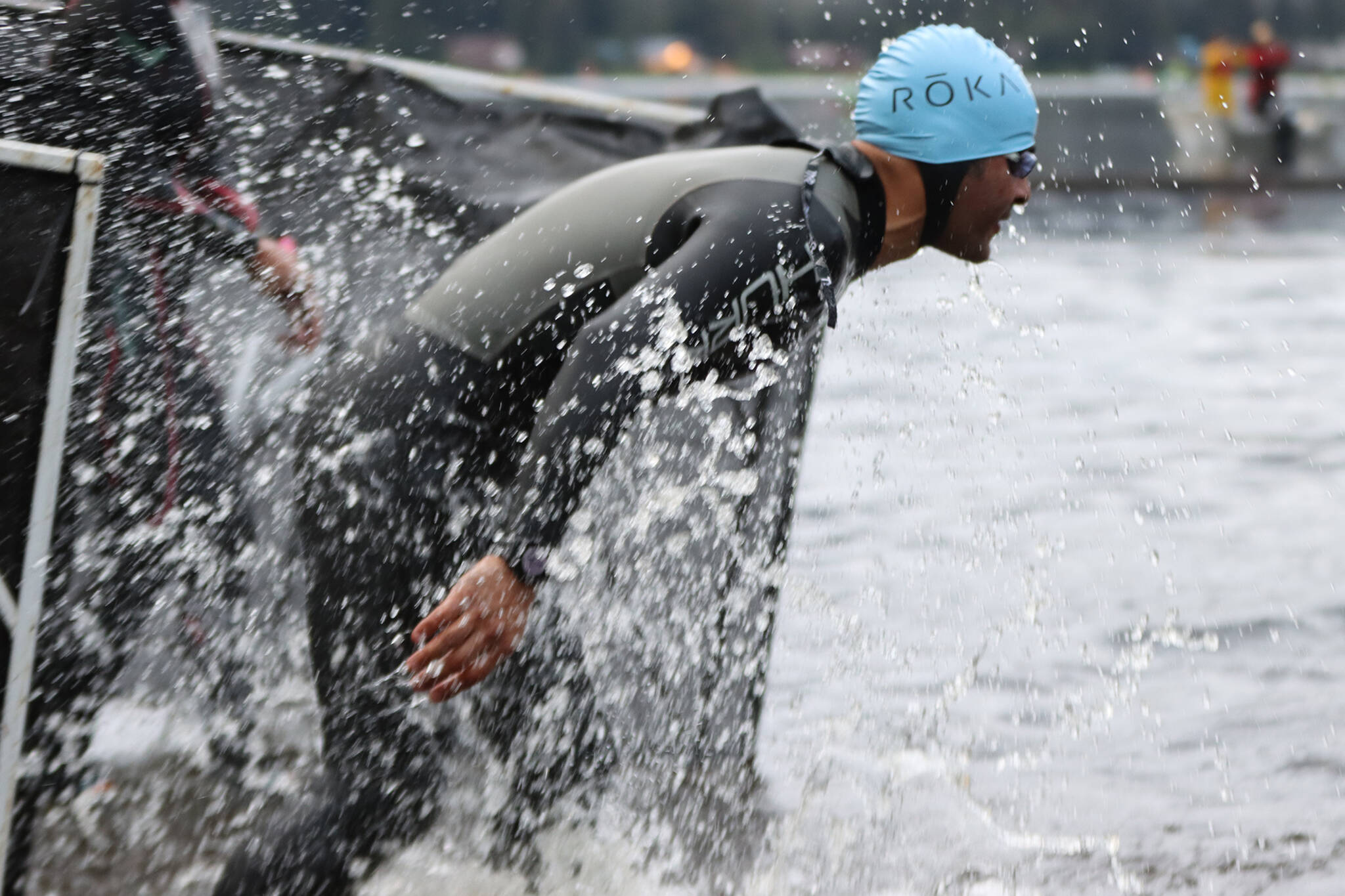“Anything is Possible” is a registered trademark of the Ironman Triathlon competition, capturing the challenge of one of the most difficult single-day sporting events in the world. In that spirit, the Juneau community whole-heartedly embraced the opportunity to hold Alaska’s first-ever Ironman sanctioned race last August.
Despite Juneau’s remote venue, small population, and lack of amenities, Travel Juneau and an enthusiastic group of boosters and volunteers worked hard to secure the bid, believing, indeed, anything was possible, and that our spectacular scenery, unique location, and community support would compensate for any deficiencies. When announced a full year before the event that Juneau had secured the bid, the city celebrated the victory with a splashy press conference on the shores of Auke Lake, the site of the triathlon’s 2.4-mile swim.
That the event ultimately wasn’t as successful as hoped is not a reflection on Juneau’s effort or commitment but rather on other factors. Although Juneau welcomes over a million cruise passengers annually, we soon discovered that hosting a substantial influx of independent visitors has its own challenges.
The signed three-year contract with the Ironman Group required Juneau to pay $50,000 in 2022 with the possibility of hosting additional competitions in 2023 and 2024. This was to be offset by an anticipated $7-8 million lift to the local economy with the expected arrival of 1,300-1,600 participants plus families and friends who would stay for up to a week or longer.
Initially, this all seemed workable but as the event approached, problems began to surface.
Before arrival, competitors had already invested up to $3,000, including an $800 registration fee and airfare. Then they learned how much it would cost for sleeping accommodations. Early registrants snagged reasonably-priced rooms but later, many found that hotel rooms had doubled in price and Airbnbs were going for $1,000 per night. After available rooms disappeared, some complained that their original reservations were canceled and re-listed at higher rates.
Travel Juneau suggested residents offer rooms in their homes or rent their houses to fill the gap. A Facebook page was launched to inform contestants when rooms or homes became available.
Eventually, the participant base shrank to about 850 competitors, almost half what was originally expected.
It also became evident that transportation logistics were lacking. Taxis were scarce and visitors soon discovered there were no rental cars left available in town. Participants didn’t have a way to get their bikes to and from the airport. A local company, Cycle Alaska, stepped in and organized a bike transport operation to assist.
On the day of the race, the weather was not ideal. Due to low water temperature in Auke Lake, the swim leg was delayed and shortened. Rain and cold weather plagued runners and bikers during the race.
Obviously, some of this was beyond the control of the host city or race sponsors. But, as a community, it seemed we promised more than we could deliver.
In early December, Ironman officials announced the cancellation of Ironman Alaska in Juneau for 2023 and 2024, citing impacts from global inflation and economic pressure.
While officials also complimented Juneau as a host city, few people believe that the reasons cited were the only considerations.
It’s tough to admit that our community may have fallen short in staging an event like this. However, it should be instructive in how we plan for the future. Every community has assets and liabilities. Juneau is no exception.
Juneau boasts world-class scenery and outdoor opportunities, a diverse and welcoming community, and thriving arts and cultural organizations.
However, ways to access Juneau are few and expensive, independent visitor accommodations and amenities are limited, and weather can be problematic.
A realistic recognition of these limitations should be considered whenever city leaders contemplate expending public resources or make infrastructure investments to attract significant numbers of out-of-town guests. This is a point worth remembering in light of the city assembly’s continuing effort to fund an over $77 million expansion of our convention center.
“Anything is possible” is an optimistic catch-phrase but it’s not a strategy. Scaling events and public buildings to better match our community’s size and capabilities will be what determines their success or failure in the future.
• After retiring as the senior vice president in charge of business banking for KeyBank in Alaska, Win Gruening became a regular Opinion Page columnist for the Juneau Empire. He was born and raised in Juneau and graduated from the U.S. Air Force Academy in 1970. He is involved in various local and statewide organizations. Columns, My Turns and Letters to the Editor represent the view of the author, not the view of the Juneau Empire. Have something to say? Here’s how to submit a My Turn or letter.

